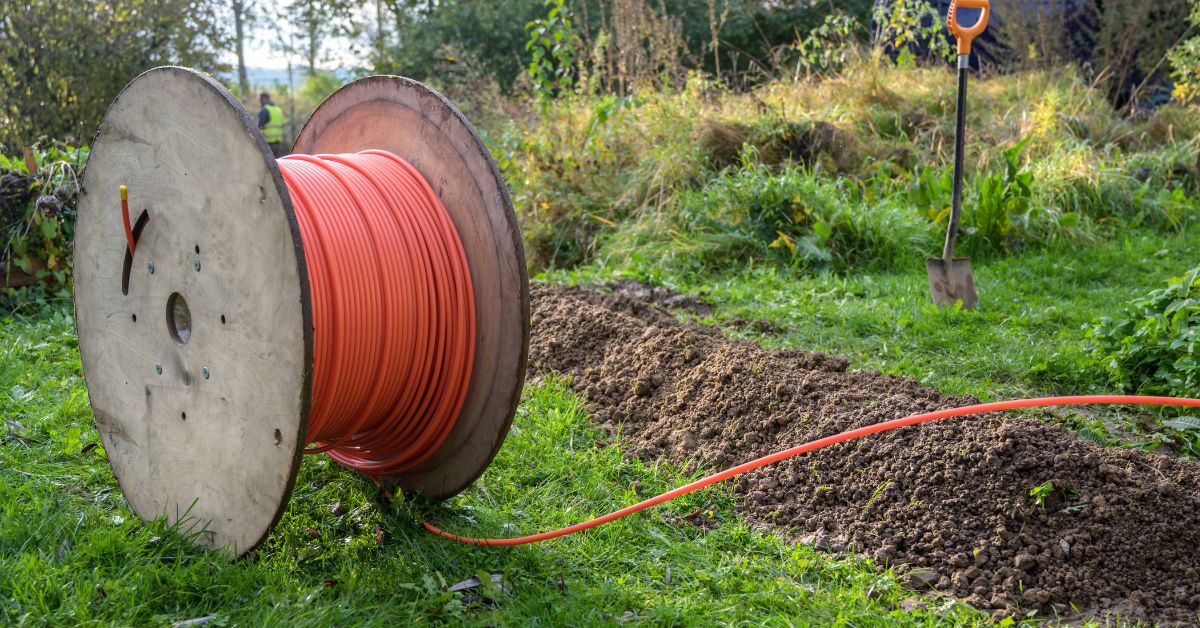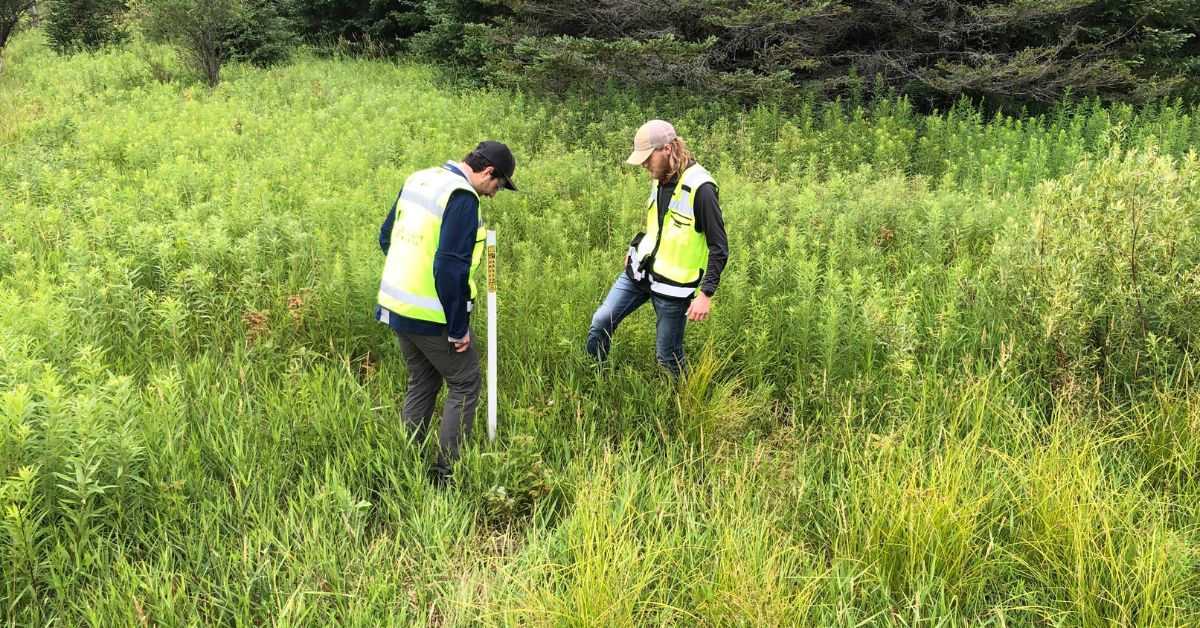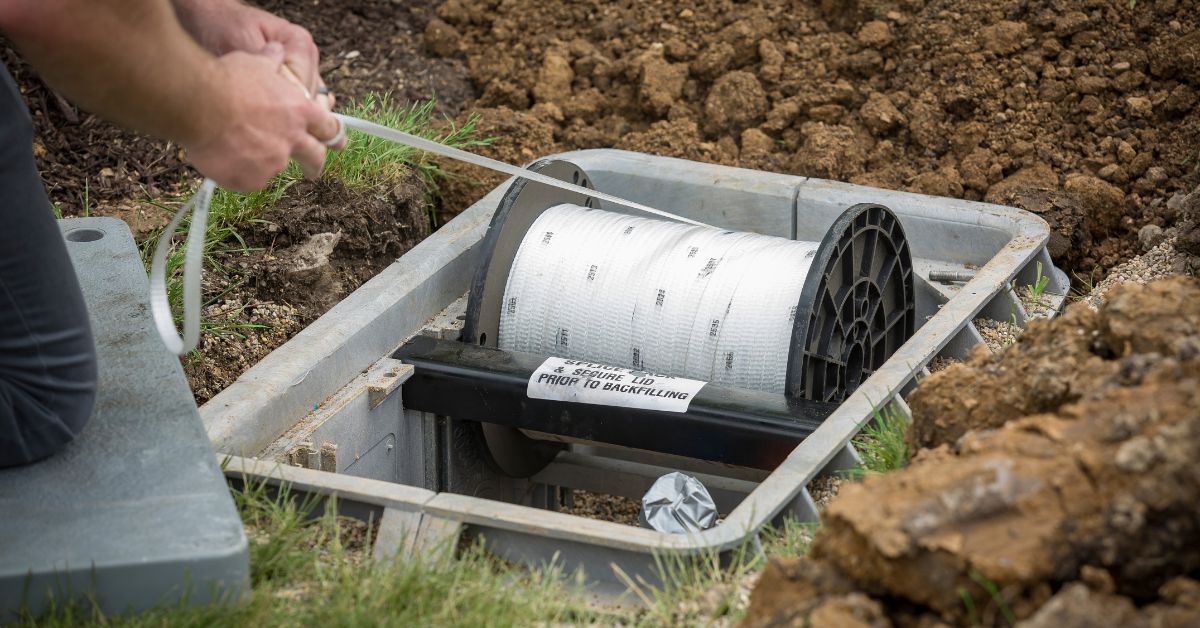No products in the cart.
Why Equipment Rentals Are Critical in Rural Fiber Projects
Home Why Equipment Rentals Are Critical in Rural Fiber Projects
- Home
- Resource Hub
- Millennium Blog
- Why Equipment Rentals Are Critical in Rural Fiber Projects

Rural fiber deployment faces unique challenges like remote locations, limited infrastructure, and tight budgets, making every decision critical. Equipment rentals provide a cost-effective solution, offering contractors access to specialized tools without requiring a significant capital investment.
This flexibility is especially valuable in unpredictable terrains where the right tools are essential. By opting for rentals, ISPs and contractors can boost efficiency and avoid costly project overruns. This guide explains why equipment rentals are critical in rural fiber projects.
The Financial Advantages of Renting
Capital allocation determines project viability in rural fiber deployment. When you purchase specialized fiber equipment outright, you tie up significant capital that could otherwise be used to fund additional project phases or expansion opportunities. Equipment rentals free up these resources, allowing you to deploy capital more strategically across your operation.
Budget flexibility becomes essential when managing multiple rural sites with varying requirements. Rental agreements provide predictable monthly costs that align with project timelines and cash flow patterns. This predictability eliminates the financial uncertainty that comes with equipment maintenance, depreciation, and eventual replacement costs.
Rural projects often operate on tight margins, making every cost decision critical. Rental agreements typically include maintenance and support services, converting unpredictable repair costs into manageable monthly expenses. This cost structure safeguards project budgets against unexpected equipment failures that could otherwise disrupt timelines and profitability.
The financial benefits extend beyond immediate cost savings. Equipment rentals allow contractors to bid more competitively on rural projects by reducing the capital requirements for project execution. This competitive advantage can mean the difference between winning contracts and losing them to better-capitalized competitors.
Access to Specialized Equipment
Rural fiber projects demand specialized tools that many contractors use infrequently. Fusion splicers, OTDR testing equipment, and fiber blowing machines represent significant investments that may sit idle between projects. Rental services provide access to this advanced equipment without the burden of ownership costs.
The specialized nature of rural terrain often requires specific equipment configurations. Rocky soil conditions may require specific boring equipment, while aerial installations necessitate specialized lashing machines. Rental fleets maintain diverse equipment inventories that match these varied project requirements.
Technology continues to advance rapidly in the fiber optics industry. Equipment purchased today may become outdated within a few years, leaving contractors with depreciated assets. Rental agreements ensure access to current technology without the risk of obsolescence affecting your capital investments.
Rental providers maintain extensive inventories of complementary equipment and accessories. This comprehensive availability eliminates the coordination challenges of sourcing compatible tools from multiple vendors. Contractors can access complete equipment packages designed to work together seamlessly.

Maintenance and Support
Equipment maintenance becomes particularly challenging in rural locations where technical support may be hours away. Rental agreements transfer maintenance responsibilities to providers with dedicated technical teams and comprehensive parts inventories. This support structure ensures equipment reliability when you need it most.
Rural projects cannot afford downtime with their equipment. A failed fusion splicer or OTDR can halt progress and create costly delays. Rental providers maintain backup equipment and rapid replacement protocols that minimize project interruptions. This reliability protection becomes invaluable when working in remote locations.
Technical support availability varies significantly between equipment manufacturers and rental providers. Rental companies typically offer comprehensive support services, including on-site technical assistance, equipment training, and troubleshooting guidance. This support infrastructure reduces the technical risks associated with complex fiber equipment.
Preventive maintenance programs ensure equipment operates at peak performance throughout rental periods. Regular maintenance schedules prevent the equipment failures that plague aging purchased equipment. This reliability advantage becomes critical when project timelines depend on consistent equipment performance.
Flexibility and Scalability
Rural fiber projects experience varying equipment demands throughout different construction phases. Initial phases might require extensive boring and cable installation equipment, while later phases focus on splicing and testing tools. Rental agreements offer the flexibility to adjust equipment inventories according to current project needs.
Seasonal variations significantly impact rural construction schedules. Weather conditions, agricultural activities, and access restrictions create periods of intense activity followed by slower phases. Equipment rentals enable contractors to scale their tool inventories up and down in response to seasonal demands.
Project scope changes frequently occur in rural deployments as site conditions reveal unexpected challenges or opportunities. Additional fiber routes, service extensions, or changes in construction methods require different equipment configurations. Rental flexibility accommodates these changes without major capital adjustments.
Multi-project contractors benefit from rental flexibility by moving equipment between active job sites. This mobility maximizes equipment utilization while ensuring each project has access to the necessary tools. The ability to reallocate equipment resources provides operational advantages that purchased equipment cannot match.
Staying Current With Technology
Fiber optic technology advances rapidly, with new equipment offering enhanced capabilities, improved efficiency, and increased reliability. Equipment rentals provide access to these technological improvements without requiring new investments. Contractors can deploy the latest fusion splicers, testing equipment, and installation tools as they become available.
Rural projects benefit significantly from technological improvements that increase installation speed and reliability. Advanced fiber blowing systems, automated splicing equipment, and sophisticated testing tools can dramatically improve project productivity. Rental access to these technologies provides a competitive advantage that justifies the rental costs.
Equipment manufacturers continuously improve their products based on field experience and technological advances. Rental fleets typically upgrade their equipment regularly, ensuring contractors have access to current-generation tools. This access to improved equipment enhances project quality and efficiency.
Training requirements for new equipment become manageable through rental relationships. Rental providers typically offer training programs and technical support for their equipment inventories. This training access reduces the learning curve associated with new technologies and improves operator efficiency.
Millennium’s Rental Solutions
Millennium understands the unique challenges facing rural fiber contractors and ISPs. Our comprehensive rental inventory includes fusion splicers, fiber blowers, pullers, lashers, testing equipment, trailers, and essential accessories. This complete equipment portfolio supports every phase of rural fiber deployment from initial installation through final testing and activation.
Our rental solutions eliminate the equipment sourcing challenges that can delay rural projects. With ready-to-ship availability and flexible rental terms, we ensure contractors have access to the tools they need when projects demand immediate action. Same-day shipping capabilities support urgent project requirements and tight deadlines.
The complexity of rural fiber projects necessitates equipment expertise that extends beyond the provision of basic tools. Our technical team brings decades of construction experience and guides the selection, configuration, and application of equipment. This consultative approach ensures contractors deploy the most effective tools for their specific project requirements.
Millennium’s rental and leasing options offer financial flexibility, supporting rural broadband expansion. Whether you need short-term rentals for specific project phases or long-term leasing arrangements for ongoing operations, our programs are tailored to meet your business requirements and cash flow considerations.

Equipment Rentals Drive Rural Fiber Success
Rural fiber deployment success depends on strategic equipment decisions that strike a balance between capability, cost, and flexibility. Equipment rentals address the fundamental challenges of rural projects by providing access to advanced tools without capital constraints. Understanding why equipment rentals are key to rural fiber projects allows you to see the advantages that make them essential components of successful strategies.
The unique demands of rural fiber projects require specialized solutions that traditional equipment purchasing cannot provide. Rental agreements offer the adaptability and support infrastructure necessary for successful rural deployment while protecting project profitability and timeline commitments.
Ready to explore how equipment rentals can enhance your rural fiber projects? Discover Millennium’s comprehensive fiber optic test equipment rentals and complete rental inventory. Our experienced team stands ready to support your rural broadband initiatives with the right equipment solutions for your specific project requirements.
